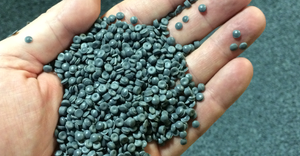Lessons Learned from Atlanta’s Ongoing Efforts to Reduce Recycling Contamination
Yesterday’s keynote at WasteExpo Together Online focused on “Feet on the Street Atlanta” – The Recycling Partnership's Case Study on Citywide Contamination Reduction.”

Yesterday’s keynote at WasteExpo Together Online focused on “Feet on the Street Atlanta” – The Recycling Partnership's Case Study on Citywide Contamination Reduction.”
It featured a discussion with the stakeholders involved in the program and offered insights on its inception, execution, challenges, success, and lessons learned. The speakers were: Kanika Greenlee, Executive Director, Keep Atlanta Beautiful Commission at City of Atlanta; Nicole Smith, Sustainable Packaging Program Director, Coca-Cola North America; and Moses Tejuoso, Community Affairs Manager, Keep Atlanta Beautiful Commission at City of Atlanta.
Moderator Cecilia Shutters, Recycling Technical Advisor for Atlanta at The Recycling Partnership (TRP), kicked the session off with a quick background on how TRP works hand in hand with communities and companies in order to improve recycling operations and education, working toward measurable and positive change. She explained that the Feet on the Street (FOTS) program in Atlanta was made possible through a grant made to TRP from the Coca-Cola Foundation.
Smith elaborated that Coca-Cola’s interest in investing in community-based recycling efforts is grounded in the company’s “world without waste” goal, which incorporates design, collection, and partnership components. Alongside the company’s internal efforts of making all packaging 100% recyclable by 2025, it also has an outward focus on building a circular economy and working with partners in order to do so. Coca-Cola wants to collect every bottle or can it puts into the marketplace by 2030, and the company recognizes its role and ability to help make it easier for Americans to recycle—and to understand the importance of it; hence partnerships such as the one with TRP and the City of Atlanta. Smith said that, “Nobody can go this road alone, and we’ve got to work together.” Greenlee and Tejuoso then talked about the details of the FOTS program. As part of a three-year commitment (2019-21) to reduce recycling contamination and increase participation across the city, the Department of Public Works is targeting single-family, multi-family, and university communities. Greenlee talked about a 2017 pilot study that was conducted with 5,000 households over seven weeks. The pilot yielded “dramatic results” including a “huge decrease” in the number-one contaminant (plastic bags) and overall contamination, as well as a large increase in the capture of recyclable materials. Building on this success, the city then wanted to expand the effort citywide.
The goals of Phase One (January 2019-January 2020) were to reach all 98,000+ single-family households; increase capture 20%; and decrease contamination 25%. The first year focused on contamination; years two and three will focus on participation. In order to effectively communicate with, and educate, households, the city launched a “Know What to Throw” campaign, coupled with “oops” tags that were left on a resident’s recycling bin if the bin included a contaminant (and noting which contaminant(s)).
Tejuoso discussed the campaign communications plan, which included social media, print and radio ads, and bus shelter ads. There was also a goal of engaging with residents four times over four weeks, to reinforce recycling-related education. The city saw a significant growth in visits to website as well as calls to its customer-support center; people wanting to ask questions, learn more, and understand what they were doing wrong. Phase-One success was measured through a before-and-after capture rate study, The Recycling Partnership Audit App powered by Rubicon that tracked for contamination, and through MRF staff scoring and tracking against The Recycling Partnership Audit App powered by Rubicon. After the first year, the city saw a 19% reduction in contamination and a 9% increase in recovery—good improvement but more work to be done.
Smith later talked a bit about Coca-Cola’s work on multi-family and public-space opportunities, helping to change the dialogue and make recycling fun. “It has to be personal. Otherwise people think, ‘I’m doing it right.’ People generally think they are [recycling] right. The panelists also discussed the impact of COVID-19 on their work over the past months and going forward. Smith said that she and her team are thinking about, “What legwork can we put in now before things come back, and hopefully we get back to a new normal—but also what are the challenges communities are going to face three-to-six months from now? Where else do we need to play a role in these communities? We’re trying to be as supportive as possible…so that recycling doesn’t stop.”
Don’t miss any other fantastic sessions happening this week at WasteExpo Together Online. It’s not too late to register! https://www.wasteexpo.com
About the Author
You May Also Like




